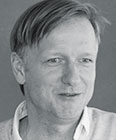
Practitioner of Ayurveda medicine and indologist
Elmar Stapelfeldt is an alternative practitioner, master of indology and author. He is currently active as a non-medical practitioner, nutritionist and scientific assistant at the Immanuel Hospital in Berlin. He has extensive experience in the application of Ayurvedic medicine. Among other things, he was a long-standing lecturer at the European Academy for Ayurveda, including 5 years as head of the department of Ayurvedic Medicine.
In the 2019/2020 season, almost 9,900,000,000 kg of coffee were handled worldwide. A German children's song urgently warns against too much C-A-F-F-E-E. Recent scientific studies provide data that 3-5 cups of coffee per day are helpful in Parkinson's disease, prostate and liver cancer, diabetes mellitus type 2, liver cirrhosis and depression in women and help reduce general mortality. In the Ottoman Empire - and also in Germany - coffee consumption was temporarily banned under heavy penalties. And won't you also get disheveled, can't sleep and get heartburn if you drink too much coffee?
What is the truth about the coffee? It is not described in classical Ayurveda. Nevertheless, the categories of Ayurvedic pharmacology can be used to better understand the effects of the most popular stimulant in the world.
Elmar Stapelfeldt - nourishing advisor, welfare practical man and scientific coworker in the Charité university outpatient clinic for naturopathy at the Immanuel hospital Berlin - looks with you in this on-line seminar deeply into the sentence of the black infusion drink. He uses a wide variety of sources from East and West as well as experience from working with his patients to develop a practical Ayurvedic assessment of the real effects of coffee.
Constitution critical - What is the real importance of the typology of Ayurveda in therapeutic practice?
HP Elmar Stapelfeldt MA
"My constitution is pitta, my symptoms are vata and my husband is kapha - what else can we eat?" With this dilemma many patients who have studied Ayurveda more intensively come to my practice. They want to use Ayurveda for themselves, but are at a loss as to how to put it into practice.
What went wrong with the communication of Ayurveda in media and literature? Has the concept of the constitution (prakrti) been presented too blurred to make it useful for the interested layman? Has it been understood in depth in the German-speaking countries? Or has it degenerated into a marketing gimmick to give customers a better feeling when they buy their 'individual' vata, pitta, kapha products?
This lecture conveys the definitions, meanings, possible applications and controversies of the Ayurvedic concept of constitution. Above all it will be about the practical use when dealing with patients. Let's put our understanding of prakrti to the test together and lively discuss the possible applications!
Expert forum: Research Project Case Registry Ayurveda Medicine
sACRo - series of Ayurveda Case Reports
HP Elmar Stapelfeldt MA
The sACRo project is taking shape! Already at the Symposium 2017 this register was presented to the circle of experts in the form of an online database for the collection and evaluation of Ayurveda cases. It should offer Ayurveda practitioners the possibility to research well documented Ayurveda cases and use them for difficult therapeutic questions. Series of similar cases will be scientifically evaluated and published and will serve as a basis for larger research projects.
The implementation is mainly carried out by the two project partners Charité Universitätsmedizin Berlin and Rosenberg European Academy for Ayurveda. Thanks to the financial support of the professional associations VEAT and DÄGAM it was possible to carry out the necessary preparatory and research work last year and the basic structure of the database was programmed by a team of young computer scientists from Austria. In an elaborate consensus process, the 4 suitable clinical pictures for which the database is to be used in the pilot phase were identified (exhaustion, arthrosis, irritable bowel, rheumatoid arthritis).
If you have experience in the practical application of Ayurveda as a doctor or alternative practitioner, you are invited to participate in this expert forum. First of all, the coordinator Elmar Stapelfeldt will present the project and its current status in a vivid way. Afterwards we will discuss the next steps of the sACRo project. In particular, we will focus on which parameters are suitable to capture the mentioned disease patterns well without producing an immense input workload.
Take part in this innovative, practice-oriented research project!
When you are travelling, it is helpful to know in which direction your destination is located - at least you will not go completely in the wrong direction! The doshas have a similar significance in Ayurveda diagnostics: as practical guides they provide general orientation for the choice of therapy. But just as one needs more precise information to find a geographical destination, an individual Ayurveda therapy requires a multitude of further diagnostic parameters.
The three doshas are ultimately only summaries of seven properties (guna) each. Deciphering them opens up a fascinating approach which is the core of classical Ayurvedic thinking and which can be applied to all phenomena of the inner and outer world. With the help of the property model, symptoms and therapeutic methods can be brought into a relationship by balancing excess properties with therapeutic measures of opposite properties. Let us take dryness as an example: Arthrosis is ultimately a "drying out" of the cartilage surfaces, which leads to degeneration of the joint tissue. Ayurveda counteracts the disease with "moisturising" measures such as oil massages or the intake of fat-based medicines and foods. Especially in nutritional therapy this approach is of great clinical benefit and represents a real alternative to the molecular-biological thinking of modern natural sciences. In addition, this way of thinking is also easy to understand for laymen, so that, for example, the patient can quickly be given the opportunity to be independent in the choice of food.
In this workshop we will briefly show the background and sources of "thinking in terms of properties". As a practical diagnostic training we will apply it to our everyday experience, especially by means of handy examples, build a bridge to Ayurvedic diagnostics and use it for a differentiated nutritional therapy with the help of short case studies.
Practical cases are the best basis for the clinical study of medicine. They reflect the real situation in everyday practice and are better suited for professional exchange among colleagues than schematic representations of theoretical content.
In this interactive colloquium, Ayurveda doctors and practitioners will present insightful cases from their practice for discussion. In this way we would like to promote the exchange of ideas among colleagues and use case studies to convey therapeutic experiences from their practice. The speakers will present the findings, demonstrate their diagnostic paths and use them to develop the therapeutic strategy that has led to successful treatment.
For the fourth time already, this format of case discussion is an important enrichment of the symposium in Birstein.
The long-term goal of the organizers is to promote a "culture of case discussions" in Ayurveda circles - get in!

Rosenberg Ayurveda and Wellness-Consulting AG
European Academy for Ayurveda Switzerland
Büelstrasse 17
CH-6052 Hergiswil NW
info@ayurveda-symposium.org
Newsletter
* I have the Privacy policy taken note of. I agree that my details and data for answering my enquiry are collected and stored electronically.

2024 © Rosenberg Ayurveda Academy gGmbH